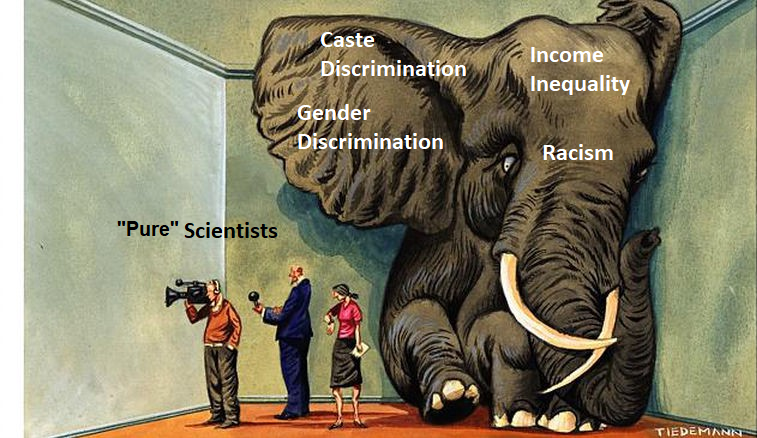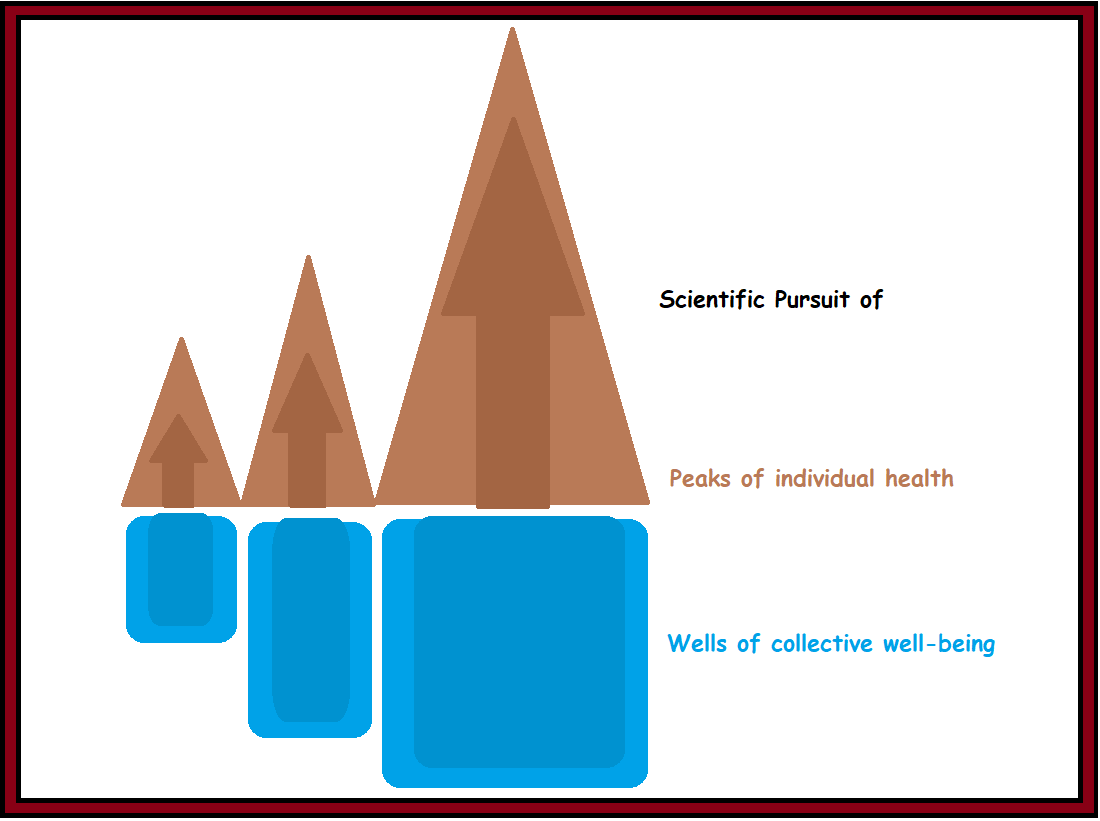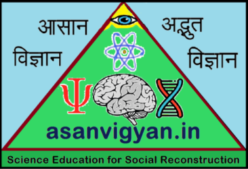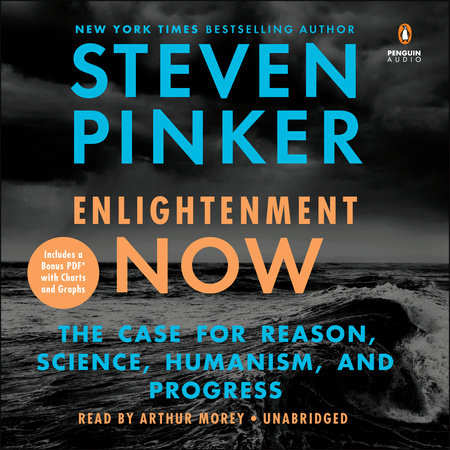
It is not new for me to face the wrath of “pure” scientists when i attempt to raise social issues on science education platform. They generally scold me for carrying out “activism” and defiling the place meant for “pure science and basic research”, and try to persuade me to not say express about social issues because that is not our field of “research and expertise”. What is the outcome of such attitude ? A society where the privileged scientists have no moral responsibility to address the ground level problems of the same society. I am sure those who oppose the interference of science in the field of morality are from the privileged background and hence fear losing their benefits of social discrimination when science comes out fearlessly to scrutinize and end caste and other forms of exploitation.
This article derives inspiration from the book, “The Moral Landscape: How science can determine human values“, written by neuroscientist Dr Sam Harris, who according to me is one of the most pragmatic thinker and an engaging writer of our current era.

Quoting Sam’s general thesis, “I am not suggesting that science can give us an evolutionary or neuro-biological account of what people do in the name of “morality.” Nor am I merely saying that science can help us get what we want out of life. . . . Rather I am arguing that science can, in principle, help us understand what we should do and should want — and, therefore, what other people should do and should want in order to live the best lives possible”
And his claim being; “There are right and wrong answers to moral questions, just as there are right and wrong answers to questions of physics, and such answers may one day fall within reach of the maturing sciences of mind” .
Another strong case in point in favor science can take us many steps closer to equality, as made by Steven Pinker in “Enlightenment Now”,
“A quantitative mindset, despite its nerdy aura, is in fact the morally enlightened one, because it treats every human life as having equal value rather than privileging the people who are closest to us or most photogenic. And it holds out the hope that we might identify the causes of suffering and thereby know which measures are most likely to reduce it”
Herein furthering the case for seeing science as a philosophical propeller for the pursuit of human and general ecological well being.
Science seems to be commonly seen and taught as a practical tool for making our lives less miserable in a very “material” sense. Although science has played a central role over time in shaping the civilization’s structure and functions, it has for most of the part been seen and treated as a servant of some other underlying pursuit, mostly for the spreading of kingdoms, nations, religion and accumulation of wealth by private enterprises.
Ain’t no doubt that science is getting more and more attention and making unprecedented progress with every passing second. Still there seems to be a formidable boundary, a boundary that blocks science from entering into the discussion of morality and human well being, confining it to a heartless mechanical “mind”.But the pursuit of science is also driven by heart for improving the society in two directions. Health and Well Being.
Herein we may imagine them as various heights of individual health and water bearing deep wells of collective well-being.

Improvement in health has been one of science’s remarkable success, in helping cure diseases and prolonging human life and reducing pain. Its the pursuit of health for sustaining a better life for the individual conscious being. In this we have to group in the fitness factors and synergy between different organs of the body. But is health a defined quantity ? It is qualitative right ? Still no one would have problem when scientists and doctors speak of health. Then why not the same people approach well-being and morality in the same way ?
The pursuit of collective well being is where there’s collaborative research for maximizing the well being of all human beings, as many as possible.
Scientifically addressing social issues is easy when we imaging a scale for well being and social health
When we pursue collective well being as a natural goal, then we would love to pursue a future where children born on any part of the world get fairly good amount of well-being wells filled and heights of health reached, and hopefully not face natural (in terms of access to natural resources like water, land and proximity to toxic environment) and the much needed logical boost in ending social discrimination based on class, race, gender, religion, caste etc. So i am urging all scientists, young and old, to stop being silent spectators to the social issues and speak against that which is wrong in the society, and consider the pursuit of well-being and social health also as a scientific venture.
There will always going to be disagreements between different religions or secular philosophies, nonetheless if we shift our collective focus to the greener side, there is ample scope to find areas of synergy (Ecological conservation and pollution control being very obvious ones), enabling us to spend ample time and resource on promoting a scientific pursuit of overall human well being, and generate taller peaks and deeper wells in the moral landscape for all in the current and future generations.

(Prosperity flower image showing different aspects of overall human well being : https://www.freedomtocreate.com/our-approach/the-prosperity-flower/)
Please comment your view on considering scientific study of well-being and how science can be the strongest foundation for our moral values. Adios!


